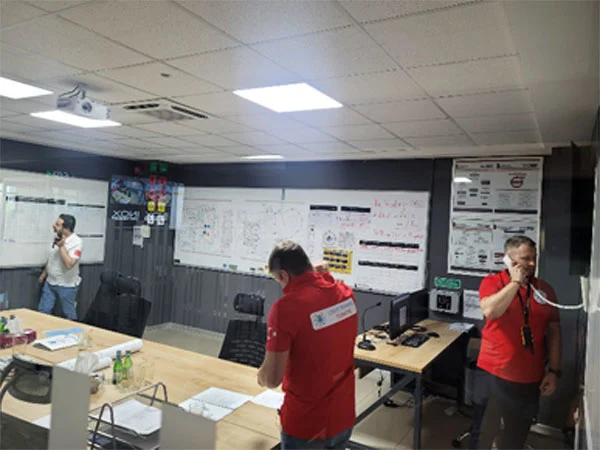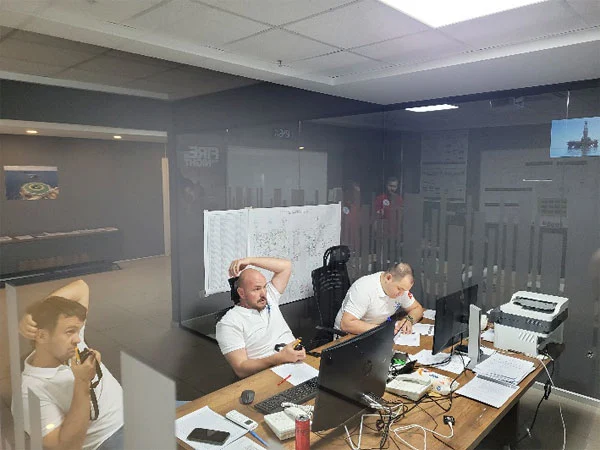OPITO Major Emergency Management – Initial Response Training
This training is for personnel who are either designated as being in charge of, are members of, or provide support to an emergency management team in an emergency.

is approved by OPITO.
Purpose
This Product aims to equip personnel with formal training in command, control, communications and stress-related factors in the management of major emergencies. In addition, this programme also provides initial emergency management training for personnel who are undertaking a training and competence programme to progress to the role of an emergency response manager.


Course Content
To achieve the Major Emergency Management - Initial Response training the learner will need to complete the following mandatory learning outcomes:
- Major Emergencies types and the managers responsibilities.
- The Emergency Manager Role
- The Emergency Command Centre (ECC) Facilities and Information Management
- Pre-Planning and Maintaining a State of Readiness
- Dealing with Stress
- Review, manage and assess the information available in an emergency situation in a timely manner
- Establish priorities and take effective action
- Implement predetermined emergency plans and procedures in the context of the current emergency
- Efficiently communicate information and instructions
- Effective communication with all appropriate external agencies
- Monitor and Control Resources
- Evaluate progress and communicate changes in plans and priorities
- Effectively delegate authority and manage individuals and teams
- Effectively manage themselves and the team during a major emergency including managing the effects of stress in themselves and others
Objectives
The objectives of the MEMIR Training are that learners will be able to:
a) Understand the key factors of preparing for, responding to, and maintaining control throughout the development or escalation of an emergency situation.
b) Learn how to manage communication, emergency-related information and put into place predetermined plans at the point when the emergency alarm has been raised, to the point when the emergency manager is assured that the emergency is over
c) Understand how stress can impact on individuals and team performance during emergencies.
d) Have the opportunity to role-play as the emergency manager in a minimum of two specific types of emergency scenarios. This is a key element of the training programme, and is backed up by constructive feedback from the course instructional team. The aim of the MEMIR training is to equip personnel with formal training in command, control, communications and stress-related factors in the management of major emergencies.
Course pre-requisites and Medical Entry Requirements
There are no formal pre-requisites for this course.
However, activities contained within this training may include physically demanding and potentially stressful elements. All personnel who participate in such activities must be capable of participating fully. Therefore, you will be required to undergo medical screening by completing an appropriate medical screening form upon your arrival to the Lerus Training Centre.
Assessment and GAP analysis
Following a short period of classroom study, the learners enter a command centre simulator in which they will each experience, on a minimum of two scenarios in the role of emergency manager, the realism of several major events. Prior to the first simulated exercise, a theoretical discussion of the generic emergency scenarios will prepare the learner to ensure that they understand what is expected of them and the required steps to meet the criteria of the Standard and the practical exercises. A postexercise debrief will be held where an appraiser will feedback on the strengths and weaknesses of the individual and team performances.
Following training and appraisal, the learner will receive an OPITO-approved Major Emergency Management Initial Response training certificate and a written analysis of any knowledge and performance gaps. These gaps should be met by further training and workplace drills and exercises.







